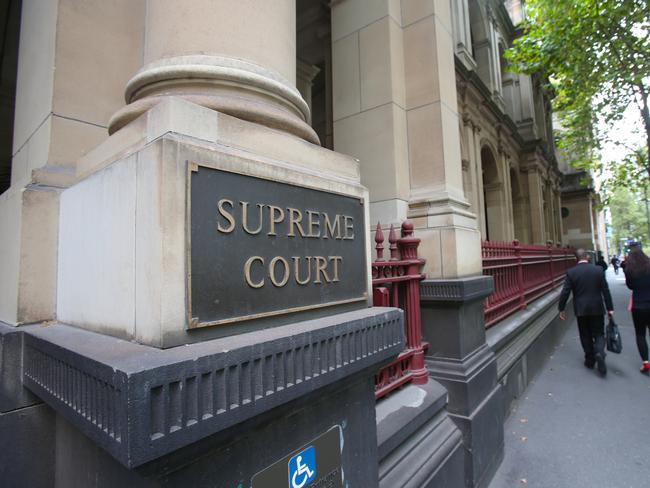Terrorism accused’s Muslim wife given private Supreme Court viewing room over niqab ban
THE Muslim wife of a man on trial on terrorism charges has been given use of a private viewing room at court after refusing to remove a full-face veil.
Law & Order
Don't miss out on the headlines from Law & Order. Followed categories will be added to My News.
THE Muslim wife of a man on trial on terrorism charges has been given use of a private viewing room at court after refusing to remove a full-face veil.
Arrangements have been made for the hearing to be live-streamed to the room so she can follow her husband’s trial.
The woman, who cannot be named, had earlier failed in a challenge to a ban on her wearing the veil inside the courtroom.
VICTORIAN SUPREME COURT JUDGE BANS BURQAS
LIBERALS PUSH FOR TOUGH BURQA COURT BAN LAWS
She argued wearing the niqab was a “fundamental way in which she observes her faith”, and the ban oppressed her, breaching her religious freedom and her right to participate in public life.
But a Supreme Court judge said security considerations made wearing face coverings in court impractical.
The niqab covers the head and face, except for an opening for the eyes.
The woman had wanted to sit in court to support her husband.

She had offered to remove her niqab on arrival, so court security staff could ascertain her identity.
Hats and sunglasses cannot be worn in court, and the judge said a requirement that faces be uncovered was the least restrictive security measure.
The judge said while open justice, religious freedom and the right to participate in public life were fundamental values that must be accorded full respect, “no one could sensibly claim that these principles and rights brook no limitations.”
“I consider it a reasonable limitation ‘demonstrably justified in a free and democratic society based on human dignity, equality and freedom’ to require spectators in the public gallery to have their faces uncovered,” the judge said.
“If someone feels strongly that it would be improper for them to uncover their face in court, they can choose not to attend.”
Victims of Crime Commissioner Greg Davies said some victims gave evidence from a remote room but it was unusual to extend such as facility to a spectator.
“I have no objections to the courts being accommodating, but there have been examples where victims have been so distressed they have had to leave the court without this opportunity being afforded them,” he said.
“I’m a firm believer that in our democracy there is one law for everyone, and participation in the process around that law should be the same for everyone too.”
In the ruling, the judge also said: “I do not consider the wearing of niqabs in court for religious reasons to be disrespectful, offensive or threatening, although … I do consider it to be an impediment to the deterrence and punishment of misbehaviour by spectators in the public gallery.
“Criminal proceedings … are often highly stressful experiences … as a consequence of that stress, incidents happen from time to time in court.
“While it is rare for physical violence to erupt, it is not so rare that things are said by spectators in the public gallery which should not be said …
“Spectators whose faces are uncovered are likely to appreciate that, if they misbehave, it will not be too difficult to establish their identity, even if they manage to get away from the court.”
